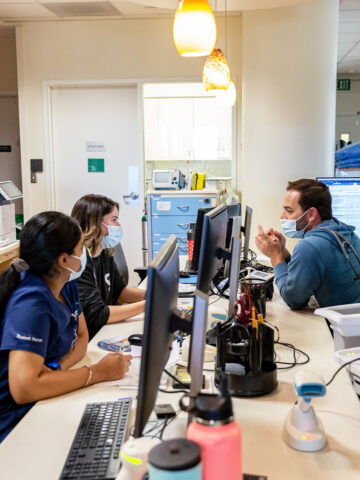In recognition of Doctor’s Day, March 30, we’d like to honor our CHOC physicians for their commitment and dedication to the children and families we are privileged to serve. Each day, they offer hope and healing through their world-class care.
The recent years of healthcare have been challenging, stressful, and sometimes, downright scary. Through it all, our physicians have remained steadfast in providing expert care to their patients.
Here, our physician wellness committee members — who help support CHOC’s organized, data-driven wellness efforts — share about how they pursue wellness in their personal lives, and offer advice for other physicians to help preserve their well-being.
Wellness advice from physicians at CHOC
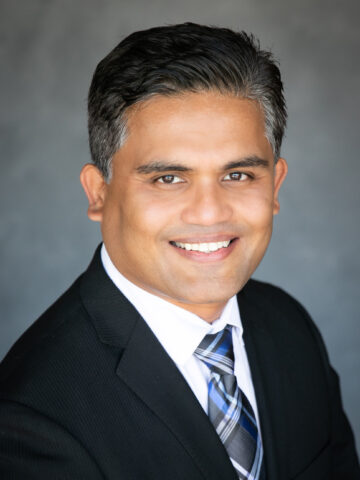
Dr. Ashish Chogle, pediatric gastroenterologist
“I have used the concept of “Ikigai” to avoid burnout at work. Ikigai is a Japanese term for finding one’s purpose or reason for being. The idea is that when you have a sense of purpose, you are more likely to feel fulfilled, motivated, and engaged in your work.
Helping difficult-to-treat patients with chronic pain conditions, starting programs for underserved disease conditions such as Anorectal malformations & Hirschsprung disease, innovating to improve parent education so that they can take better care of medically complex children at home, and working with a fantastic team of colleagues at CHOC has helped me find my purpose in life. When work becomes enjoyable, tiredness is a pleasant side effect rather than something that leads to frustration. It’s worth noting that Ikigai is just one potential solution for physician burnout.”
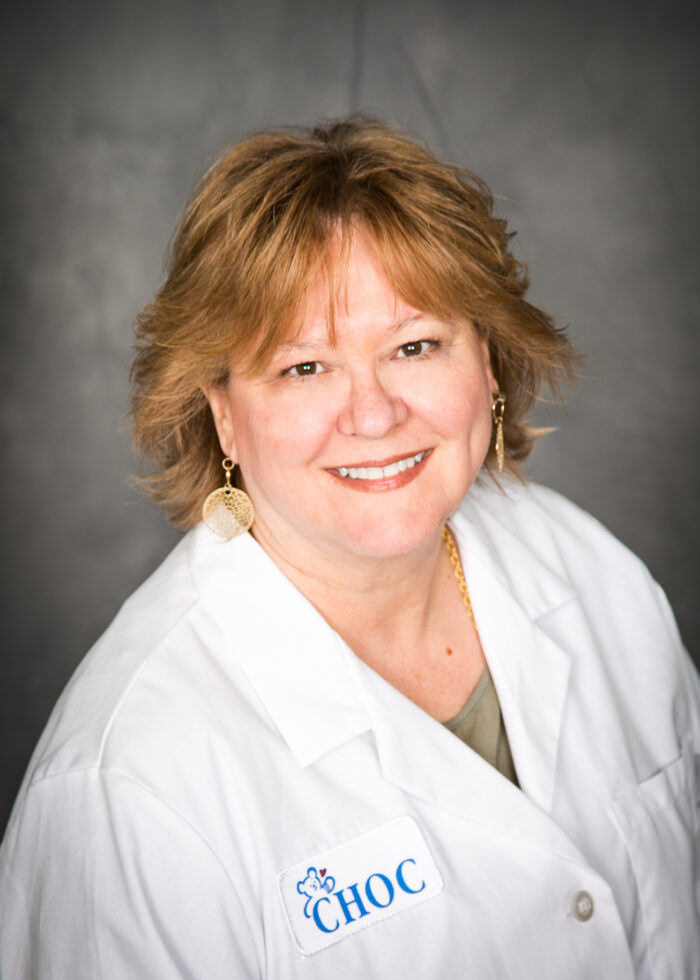
Dr. Grace Mucci, pediatric neuropsychologist
“The past few years have been challenging, to say the least. As a CHOC neuropsychologist, I have had to adjust to the ever-changing demands on my time at work (in person and virtually) and home and have myself experienced increased levels of anxiety and fatigue. To combat these personal challenges, there are two activities that have been the most helpful for me: Yoga and joining a virtual support group of other psychologists. We all know that exercise is one of the best things we can do to alleviate depression and fatigue, and yoga provides me with not only my daily dose of Om, but sacred time for me on my mat. Even my animals know that this is time for me!
Early on in the pandemic, I searched for an online support group and found one advertised on social media. This group has been so critical for providing me with the space to air my anxieties and grievances, and to gain support from my peers who understand the unique stressors the pandemic has brought to the helping professions. It is important to review our unique strategies so that we can adjust as needed, and in this ever-changing environment, it is essential for our personal well-being. So, find your daily “Om” and meet with your peeps!”
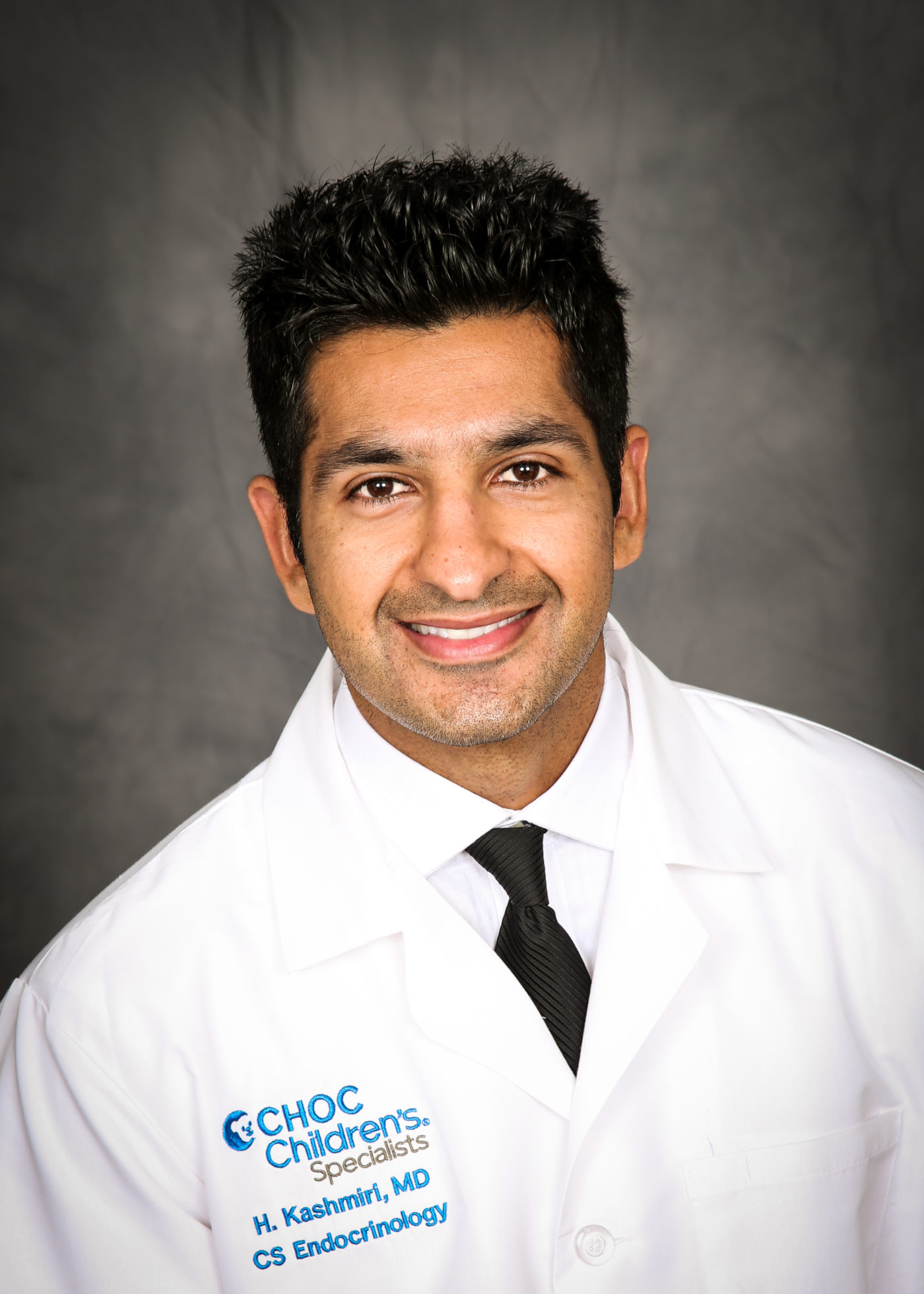
Dr. Himala Kashmiri, pediatric endocrinologist
“The importance of wellness is not a new discovery. ‘Wellness’ perhaps originated with Ayruveda, which are ancient writings of the Indian medical system, in 3000 BC. Cultivating mindfulness, appreciation, and being present are the key tenets in my practice of wellness. I would encourage you to look within yourself to discover what health looks like for you—physically, mentally, emotionally, spiritually and socially. Practicing wellness does not indicate a lack of dedication to your profession but, in my shared opinion, shows a commitment to oneself.
Discovering, nourishing and managing the peace that lies within all of us is a journey I am constantly taking. This helps me find harmony between the internal and external variables or challenges that I see daily. I find that having multiple daily “check-ins” with myself with a sense of self-curiosity without judgment or bias helps me immensely focus and prioritize that wheel of wellness.
As our patients and families share some of their most vulnerable moments with us, we should also allow vulnerability within ourselves.
Finally, although there are innumerous pathways to cultivate your wellness, Jay Shetty the author of “Think Like a Monk,” has a mnemonic that I resonate quite well with when I do my check-ins: TIMES. T for thankfulness (what are you thankful for?); I for inspiration (what inspires you?); M for meditation (this can be for 30 seconds throughout the day or hours!); Exercise (having some sort of physical activity that you can prioritize routinely); and finally, S for sleep (this can be challenging for many of us, but again it is a pillar to connect the mind, body and spirt).”
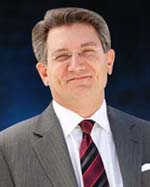
Dr. Daniel Jaffurs, plastic surgeon
“I think it was about six years ago that I really started to feel the effects of burnout. It wasn’t so much that I wasn’t liking my job, but the overall landscape for medicine that my job exists in was in part responsible for those burnout feelings. I did some research on ways to deal with the symptoms and perhaps change my point of view of the underlying issues. I had heard a lot about meditation and it really was the MRI data showing changes in the brain that occurred after just six weeks of beginning a meditation practice that got me started. I began with basic mindfulness and then some metta practices. That got me to a weekend mindfulness retreat and then a 10-day silent retreat.
Once I understood that mindfulness was really at the heart of Buddhism, I began to study the Dharma (Buddhist teachings that are actually the foundation of a lot of western psychology) and eventually joined a virtual Sangha (thanks to Covid and Zoom). I’m definitely not saying that you have to be a buddhist to enjoy the fruits of a meditation practice, but I have found that incorporating Buddhist teachings into my daily life as well as meditation has made things a lot better. Of course this begs the question of why one would need to have a mediation practice in order to deal with a system that doesn’t seem to care about how one feels emotionally. Trying to answer that question has motivated me to continue to work for others to find ways to make the environment more about what physicians and healthcare providers are most concerned about and try to make it better for all of us.”
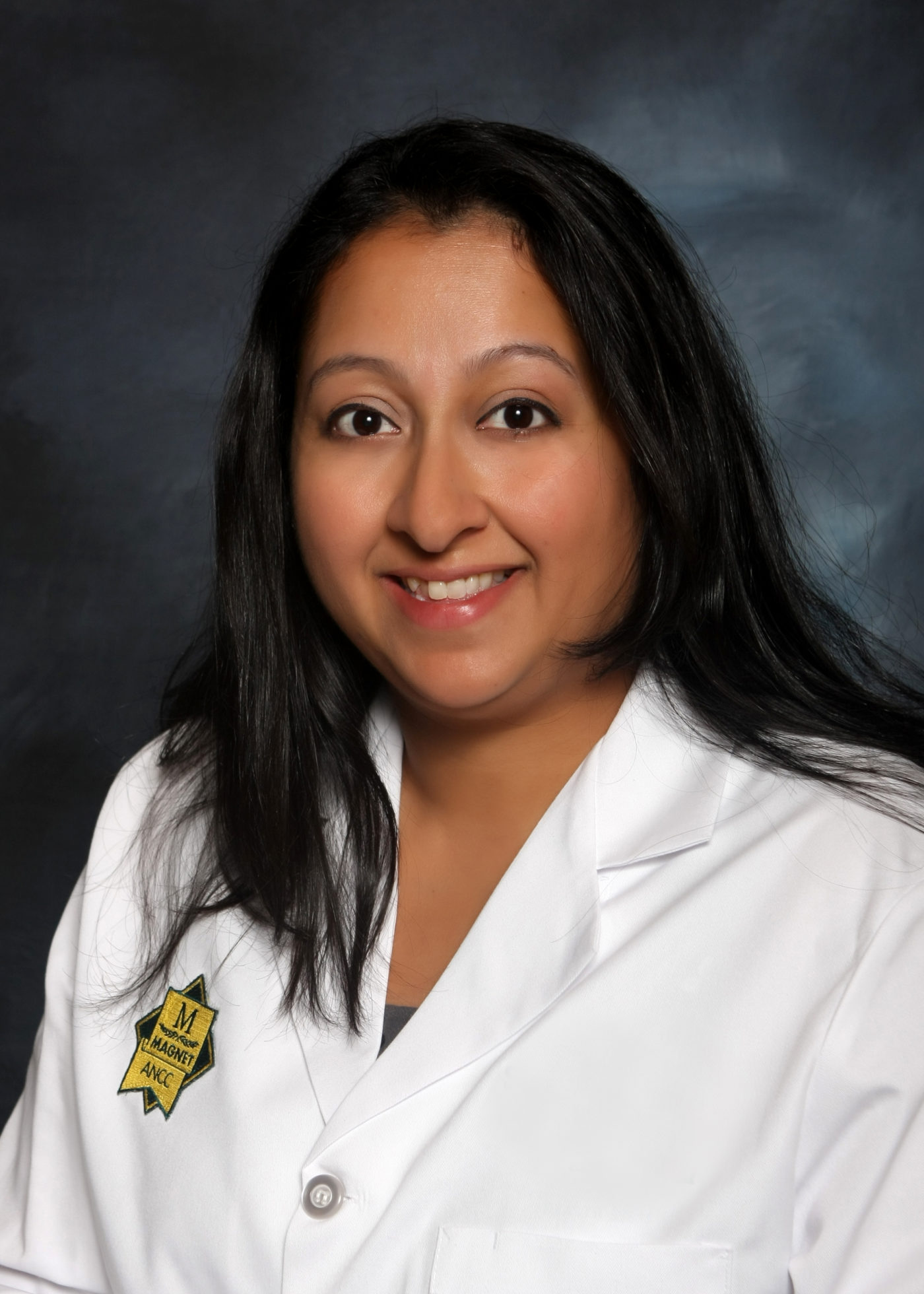
Dr. Anjalee Galion, pediatric neurologist
“When thinking about wellness there is so much information on the topic that even the search can be overwhelming. As physicians, it is even more complicated in that a large part of our training has traditionally focused on serving the patients and not ourselves. This made me look towards another industry of high-performing professionals who manage hundreds of lives — airline pilots.
Similar to physicians, pilots are less likely to seek help when dealing with burnout. Below, I summarized an article about how pilots focus on their own wellness and adapted for physicians.
5 ways for pilots (and physicians) to maintain their mental wellbeing:
1. Recognize signs of early burnout.
We all learn to encourage early detection in our patients from cancer screenings to hypertension. If you think you may be suffering from burnout, we have screening tools and a comprehensive Employee Assistance Program (EAP) that can help identify and treat burnout or any issue you are facing.
2. Prioritize your sleep.
Having and maintaining a regular sleep schedule is critical for your own wellness as well as performance. We know that sleep is important and have tried to limit duty hours for residents and fellows. As we continue in our careers, sleep continues to be important for every aspect of a healthy life. Keeping technology out of the bedroom and getting off of screens at least two hours prior to bed are just some of the strategies to maintain healthy sleep hygiene.
3. Fuel and hydrate properly.
No one expects their laptop or cell phone to work without a charge. We need to have the same respect for our bodies. A healthy, balanced diet with plenty of hydration is essential for us to be well.
4. Don’t compare yourself to others.
For physicians who are inherently competitive, this idea can be very challenging. We are all accomplished. Comparing ourselves seems natural in a time of social media but we should celebrate all that we have individually accomplished so we do not get pulled into envy, frustration and hopelessness.
5. Hold yourself accountable and seek help when you need it.
Set realistic goals and seek help if you are not doing well. The real strength is recognizing when you need help and looking for ways to get better.”
Watch CHOC’s video dedicated to Doctor’s Day
Refer your patient to see a CHOC physician.
CHOC is committed to providing community physicians with easy access to our services.


